All small and local fires are part of the general conflagration: that’s the nature of fire, which only had to be brought to earth once, against the wishes of the gods, and immediately it was available everywhere, as universal as Coca Cola. Systemic and necessary lacks – collaterised debts, bonds, traded futures – do double duty as gaping holes: the burned building, the boarded up shopfront, the empty or obliterated hoarding. They are like airholes punched in a shipping container in which one is travelling without a passport.
Again and again, the same fire: 519,278 views and counting. The display window indifferently frames every image, but the reason one can’t really do anything with this is that it only expresses an underlying consistency; it is not a thing in its own right. If every email conversation is adorned with the same insensitive Google ads suggesting that I go on a cheap holiday or learn how to keep a lover, haven’t I earned this as much as been subjected to it, not perhaps by my own will, which is irrelevant, but by my unwilled participation in endless sameness?
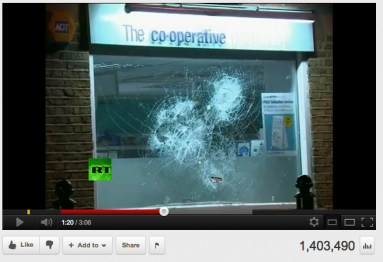
From what standpoint can I criticise this production of sameness – from the arrogance of one who believes herself to be immune? No, it’s because it doesn’t accord with my subjective sense of the world. Reality seems to fall short of reality. This subjective dissonance is the precondition of critique. Because I am sentimental, tired, easily hurt, I give this dissonance the temporary name "love," and mortgage everything on a dubious future in which… everything may be, but probably will not be, different.

The word crisis originates from an Indo-European root, krei, meaning to sieve, discriminate, distinguish. Crisis is measure, and capitalism is crisis: a petrified and endlessly repeated moment of measurement, eternally projected forward into a future that never arrives. A measure is a field in which some things recede and others draw close.
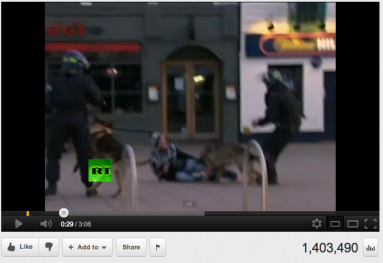
John Wilkins is credited with first suggesting a universal standard of measurement, in 1668. He also proposed a universal language that he imagined would be spoken by merchants, philosophers, and travellers. His attempts to construct universal symbolic systems have not survived. It was too literal. Capitalism is rooted in the principle that any two or more different things can be made commensurable through money: it is the money-measure that produces both sameness and difference. This principle affects every aspect of human life.

Wilkins suggested a standardised measurement for length based on the movement of a pendulum. In 1791, long after his death, this idea was rejected by the French academy in favour of another standardisation based on a proportion of the circumference of the Earth (an idea also suggested by Wilkins but that he thought would be impractical). This gave us the meter. The gram was arrived at later, on the basis of the weight of a cubic centimeter of water.

The difficulties encountered by early attempts at standardisation all had to do with the inconvenient complexity of real, living things; the globe is not a perfectly smooth round sphere, for example, and the weight of water depends on its temperature. Undeterred by this unexpected multiplicity, these crusaders persisted, arriving at measurements that are in fact only tangentially related to natural phenomena. Measure is abstraction – an abstraction that contains in itself the image of a concrete world that has been abstracted. In the end the matter was decided politically, through the signing of a convention in 1875 in which industrialised western countries agreed on the standards of measurement still used today.
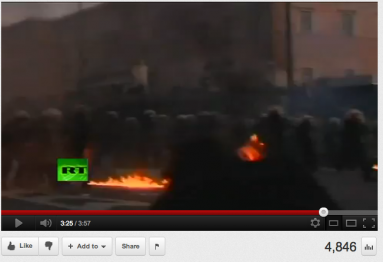
Capitalism requires a pseudo-objective measure of value. It proposes not just theoretically but practically and in every area of life that different things are the same and can be exchanged. Value is the only universal language.

What is the basis of the universal identity given by money? The goods we exchange are related in terms of the labour that went into producing them. The objective sameness of mass-made things also relates to human activity. Capitalism gives over the field of the social to value. It makes us into things, and things into something more than things: they dance with each other, they change places, they determine our fate.

Because it's already based on abstraction, the simplest exchange contains the seed of the baroque financial instruments we see today, which have metastatised crisis throughout the world. It's like how a metre rule divides sea, land, swamp and mountain alike into the same flat and devastated ground, first through a theoretical then through an actual process of domination.
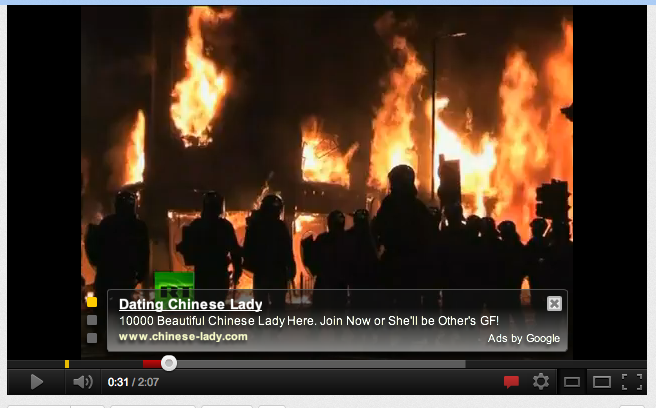
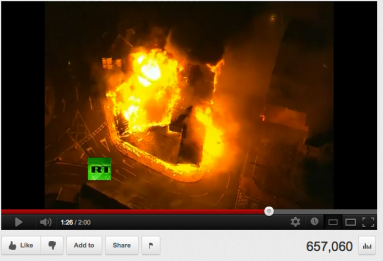
Comments are closed.